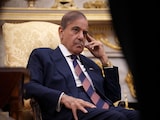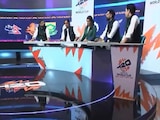Here's a sticky one. The International Crimes Tribunal (ICT) of Bangladesh, originally set up to investigate war crimes after the genocide of the 1971 war, by Sheikh Mujibur Rehman, has turned itself inside out and made itself an authority to try his daughter, Sheikh Hasina. Following this, demands for her return have started afresh, fulfilling basic legal requirements, all of which places Delhi in an awkward position. It cannot in all conscience send back a 78-year-old to face punishment against a system that is heavily loaded against her. Letting her stay risks ties with an important neighbour, at least till the erratic Mohammad Yunus remains in power, or even beyond. A favorable decision on Hasina will be politically sensitive to any government that comes to power.
The Irony Starts From The Beginning
The courts themselves are part of the irony. Under Mujibur Rehman, they did nothing in terms of punishing anyone for war crimes, as he made up with Islamabad and then opted to let things slide. His daughter, however, made it an election issue, and the court was set up under international standards, and with assistance from international jurists to do its work. And it did. That included trials of persons such as Abdul Qader Mollah, Assistant Secretary of the Jamaat-e-Islami, not only for shooting some 300-plus people, but also raping a 11-year-old. Other lights of the Jamaat followed, with much widespread support for those undeniably guilty of war crimes even as the Pakistan army rampaged through the country.
But the ICT has since changed its make up. One hint is that the Chief Prosecutor, Tajul Islam, defended a raft of Jamaat leaders between 2013 and 2016. It's also worth noting that there's nothing 'international' about it. At no time did it succeed in getting the perpetrators in Pakistan.
Meanwhile, it has been divided into two sections, with Tribunal-1 concentrating on Hasina's crimes, and the second against those who abetted her.
Reign Of Vengeance
It is the first section of this court that has handed out the 465-page judgment against Hasina and former Home Minister Asaduzzaman Khan Kamal, with the death sentence. The vengeful mood is more than apparent, as cheers broke out in court when the judgment was read. Sweets were distributed in Dhaka University, where the Jamaat-e-Islami's student wing recently won a massive win, and media reports noted deep dissatisfaction with the lenient sentence handed out to former Inspector General of Police Chowdhury Abdullah Al-Mamun, who, in return for testifying against the former Prime Minister, was 'rewarded' with just five years.
The verdict was streamed live not just across the country on huge screens but also for international audiences. Specific charges delivered by the court were ordering the elimination of protesters using lethal weapons; the shooting and killing of Abu Said, a student of Begum Rokeya University in Rangpur, the shooting and killing of six protesters in the Chankharpul area of the capital, and the killing of six people by burning them in Ashulia. A daunting list by any account. The death penalty was inevitable in a court where the accused had no say at all.
Protests And Counter-Protests
The effect of all this build-up was equally predictable. The Awami League itself is far from dead, and crude bombs were hurled at some 32 locations and protests held, even as Hasina's son, Sajeb Wajed promised, violence ahead of elections if the ban on the party was not lifted. On the other side, a crowd of hooligans appeared with a bulldozer to raze down what was left of her father's house. Yunus suspended the party in May, citing unstated national security implications. Meanwhile, Bangladesh, already reeling under an economic slowdown, has been shut down.
Following the verdict, Yunus declared that "no one was above the law", even as an organisation that monitors human rights violations documented that the same climate of extrajudicial activity and brutality continued under his government. It counts at least 40 such cases, of people being shot or tortured to death, and according to a Commission of Enquiry on Forced Disappearances set up by Yunnus himself, the numbers are growing. Not long ago, a youth member of the Bangladesh Nationalist Party (BNP) was picked up and later deposited in a hospital where he then tragically died. Other party members have suffered similarly, not to mention the several Awami League political leaders who are being hounded.
In short, Yunus may not have given a direct order to kill or 'disappear' a person, but he remains responsible just the same. The 'system' continues as before, despite claims of reform and declared good intentions.
India's Sticky Choices
So far, India's reply has been measured and noncommittal. The extradition treaty between the two countries, originally intended for pursuing terrorist cases, is comprehensive and follows international norms, with a 'political exception', which, as per customary international law, precludes witch-hunting under political conditions. The clause then goes on to list crimes that are extraditable, including manslaughter, assault and the like, all of which are crimes in India as well. It also requires that Delhi examines the courts' documents in making its decision. The request may still be 'reconsidered', and with an option for prosecution in its own courts, or not.
In other words, it's fairly flexible. And as with the United Nations Model Extradition Treaty, no country will grant extradition when there are doubts about whether the accused will face a fair trial, particularly if the death penalty is involved. Since both these clauses apply in this case, the possibility of extradition by India is remote.
Why Delhi Needs To Act Quickly
The trouble is that Hasina, in her second term in particular, was hardly a model of democratic principles. But then, neither is Yunus, who is not even elected and has been parachuted into the country by 'sponsors' in the US. But it's as sticky a problem as it gets. Pakistan, with one foot already firmly planted in the door, is going to use this to the fullest to stoke anti-India sentiments. So will China, which is also 'goodwill hunting'. With elections only months away - in February 2026 - the issue will certainly be part of political promises, unless Delhi acts swiftly to show an overwhelming proof of its goodwill in other areas like trade or assistance.
In the final analysis, the reality is that neighbours, one and all, will always use India as a flogging horse when it suits them politically but generally come around to cooperation when faced with the reality of geography. But geopolitics has become uncannily difficult to predict. In this situation, some swift groundwork is necessary to stem a tide of disaffection, promoted by extreme religious groups. Time to look at that issue of water-sharing, so long hindered by narrow local electoral politics than anything else. A little push here will go a long way.
Meanwhile, the world must watch carefully. Days before the protests on the Hasina case, there were violent protests against the Ahamadiyas, long under severe suppression in most parts of the world as non-Muslims. As each day passes, the darkness of religious intolerance will only grow. That, in some ways, is even more dangerous. Especially now. Radicalism doesn't come out of a vacuum.
(Dr Tara Kartha is a former Director, National Security Council Secretariat)
Disclaimer: These are the personal opinions of the author















